Aistra / Alma / Astrea / Aystar / Aystray / Haiztara
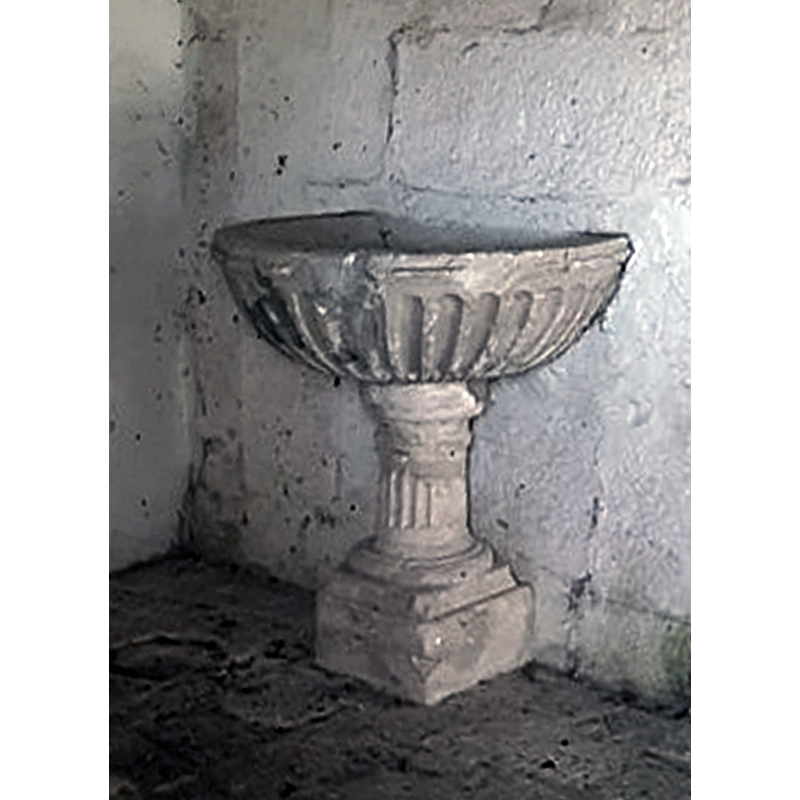
Image copyright © Oier Gordobil Novella, 2020
Image and permission received from the author via Pedro Novella (e-mail of 27 March 2020)
Results: 11 records
view of font
Scene Description: the 18thC(?) font
Copyright Statement: Image copyright © Oier Gordobil Novella, 2020
Image Source: edited detail of a digital photograph taken by Oier Gordobil Novella in 2006
Copyright Instructions: Image and permission received from the author via Pedro Novella (e-mail of 27 March 2020)
view of church exterior - corbel
Scene Description: visible here are three of the early corbels, perhaps from the original pre- or early-Romanesque church here [cf. FontNotes]
Copyright Statement: Image copyright © Ebaki, 2018
Image Source: digital photograph taken 12 August 2018 by Ebaki [https://commons.wikimedia.org/wiki/File:Aistrako_San_Julian_eta_Santa_Basilisa_baseliza_3.jpg] [accessed 26 March 2020]
Copyright Instructions: CC-BY-SA-4.0
view of church exterior - northwest view
Copyright Statement: Image copyright © Iñaki LL, 2013
Image Source: digital photograph taken 21 August 2013 by Iñaki LL [https://commons.wikimedia.org/wiki/File:Aistra_baseliza_2.jpg] [accessed 26 March 2020]
Copyright Instructions: CC-BY-SA-4.0
view of church exterior - south view
Copyright Statement: Image copyright © Iñaki LL, 2013
Image Source: digital photograph taken 21 August 2013 by Iñaki LL [https://commons.wikimedia.org/wiki/File:Aistra_baseliza_1.jpg] [accessed 26 March 2020]
Copyright Instructions: CC-BY-SA-4.0
view of church exterior - apse - detail
Copyright Statement: Image copyright © Iñaki LL, 2013
Image Source: digital photograph taken 21 August 2013 by Iñaki LL [https://commons.wikimedia.org/wiki/File:Aistra_baseliza_3.jpg] [accessed 26 March 2020]
Copyright Instructions: CC-BY-SA-4.0
view of church exterior - apse - window
view of font in context
Scene Description: the 18thC(?) font
Copyright Statement: Image copyright © Oier Gordobil Novella, 2020
Image Source: edited detail of a digital photograph taken by Oier Gordobil Novella in 2006
Copyright Instructions: Image and permission received from the author via Pedro Novella (e-mail of 27 March 2020)
view of font in context
Scene Description: the 18thC(?) font
Copyright Statement: Image copyright © Oier Gordobil Novella, 2020
Image Source: edited detail of a digital photograph taken by Oier Gordobil Novella in 2006
Copyright Instructions: Image and permission received from the author via Pedro Novella (e-mail of 27 March 2020)
information
information
INFORMATION
Font ID: 22597AIS
Object Type: Baptismal Font1?
Font Century and Period/Style: 11th - 12th century, Romanesque
Church / Chapel Name: Ermita [antigua iglesia parroquial] de San Julián y Santa Basilisa / Aistrako San Julian eta Santa Basilisa baselizara
Font Location in Church: [disappeared]
Church Patron Saint(s): St. Basilisa & St. Julian
Church Notes: original rural chapel that could be as early as 10thC [https://www.researchgate.net/publication/321767258_Longhouses_biografia_de_la_casa_y_complejidad_social_en_el_noroeste_peninsular_en_la_alta_edad_media#pf16] [accessed 23 June 2024]
Church Address: address and coordinates of the abandoned site: Aistra, 01208 Zalduendo, Álava, Spain
Site Location: Alava / Araba, País Vasco / Euskadi, Spain, Europe
Directions to Site: The abandoned hamlet/village is located off (NE) of the A3012-A3018 crossroads, in the concejo de Araya, about 2 km NE of Zalduendo and in its municipality
Ecclesiastic Region: [Diócesis de Vitoria]
Historical Region: Llanada Alavesa
Additional Comments: disappeared font? (the one from the 10th-11thC church here)
Font Notes:
Click to view
No entry found for Aistra / Haiztara in the Enciclopedia del románico [https://www.romanicodigital.com]. A former parish church, later rural chapel, in Aistra that could have been as early as 11thC is noted in Agustin Gomez Gomez (2000: 11, 87, etc.); the settlement is now abandoned. A local communication sent in March 2020 to BSI states that the chapel continued to be used for baptisms in living memory, long after it had ceased to be parochial. The only vessel inside the chapel now is a late font with part of the basin built into one of the walls; the font consists of a round not quite hemisperical basin with a ribbed underbowl, raised on a round fluted pedestal base and a round-to-square lower base; possibly 18th-century. No cover present. The odd thing about this font is that the village had been abandoned by the 16th century, but the chapel must have been maintained and/or renovated, as this font is later than the 16th century. There is documentation about the use of this chapel for baptisms well into the mid- and late-18th century in Elisa Garcia Reyes' El Camino de San Adrian (Guipuzcoa, Alava) en la Ruta Jacobea (Estudios de Arqueología alavesa (tomo XIV, p. 383ff), apparently because its patron saints were greatly venerated for their beneficial influence in cases of difficult pregnancies and births, noted in the Martyrologium Hieronymianum and in Rabanus Maurus. [NB: we have no information on the medieval fonts(s) here].
Credit and Acknowledgements: We are grateful to Pedro Novella and Oier Gordonil Novella for their help in documenting this entry
COORDINATES
UTM: 30T 554321 4749042
Latitude & Longitude (Decimal): 42.89205, -2.33472
Latitude & Longitude (DMS): 42° 53′ 31.38″ N, 2° 20′ 4.99″ W
![visible here are three of the early corbels, perhaps from the original pre- or early-Romanesque church here [cf. FontNotes]](/static-50478a99ec6f36a15d6234548c59f63da52304e5/compressed/1200326011_compressed.png)
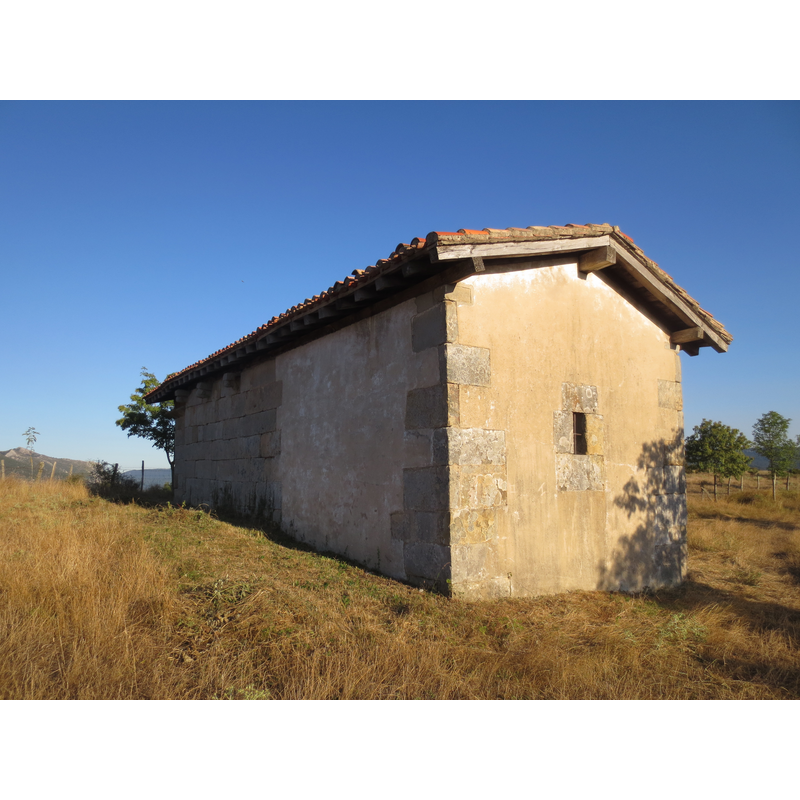
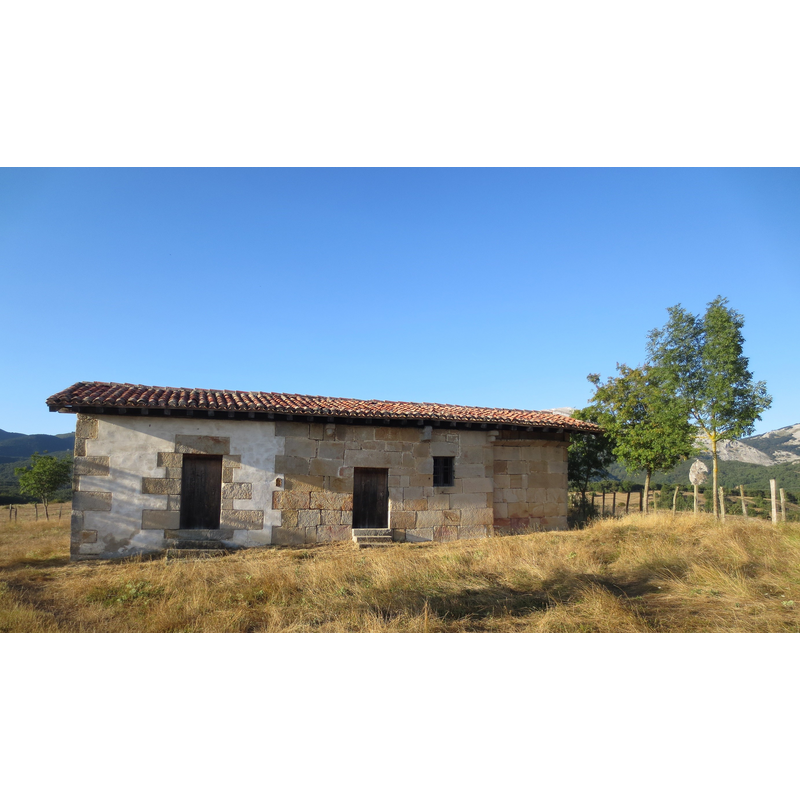
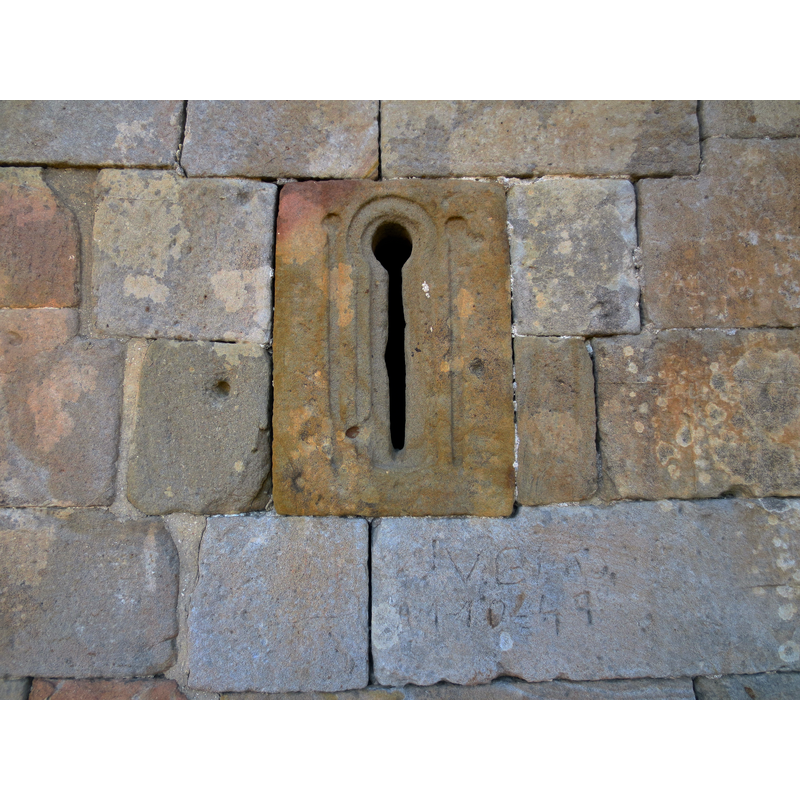
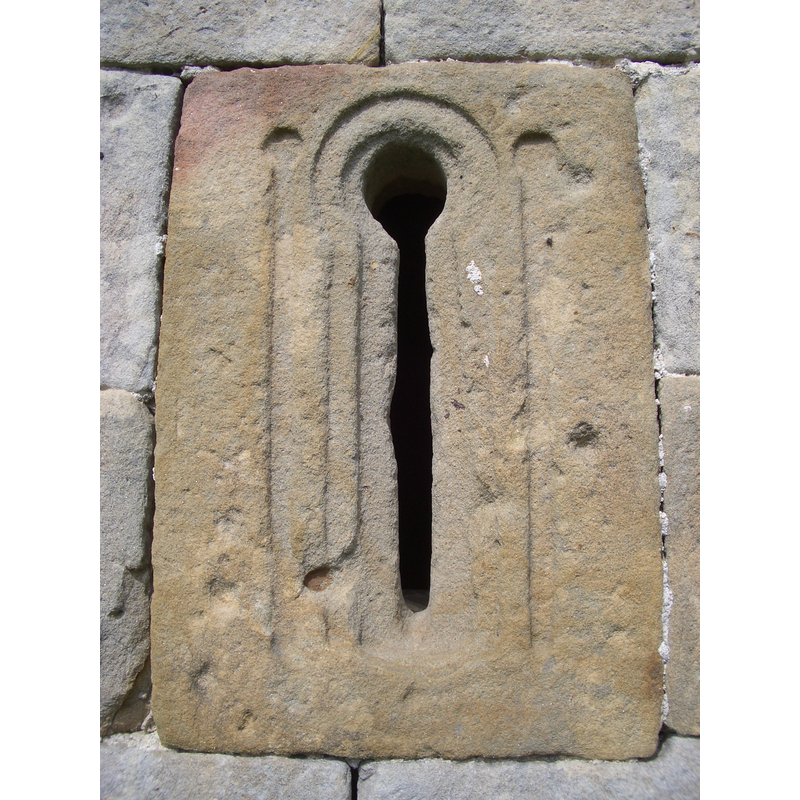
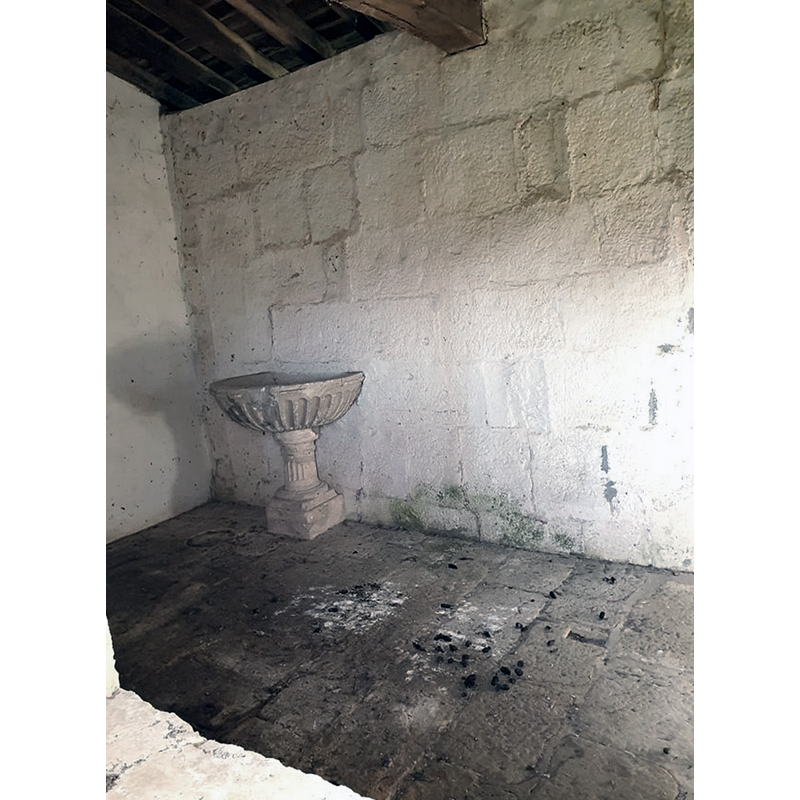
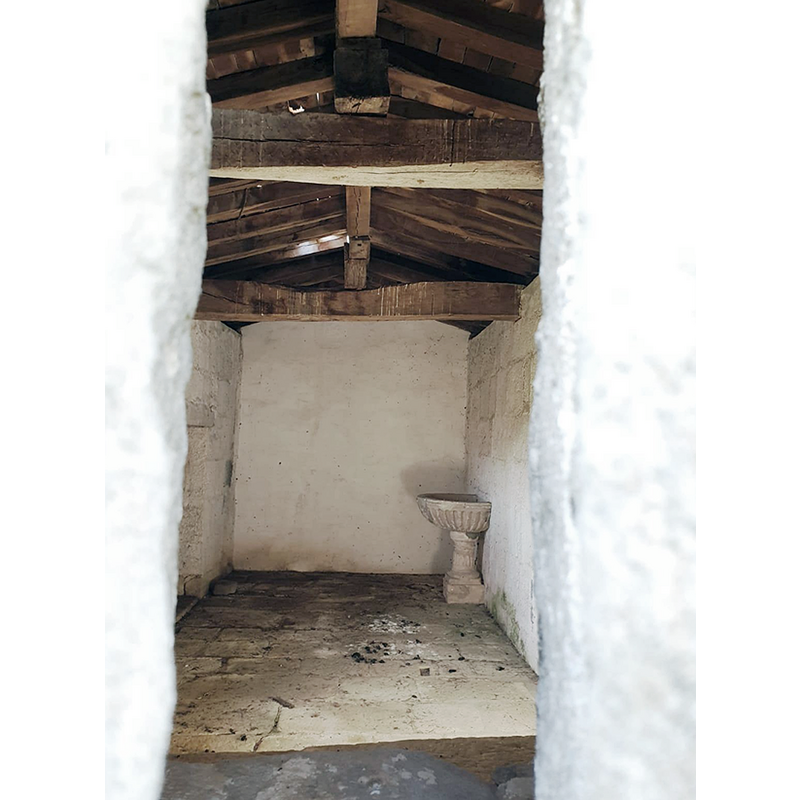
![[cf. FontNotes]](/static-50478a99ec6f36a15d6234548c59f63da52304e5/others/permission_not_available.jpg)